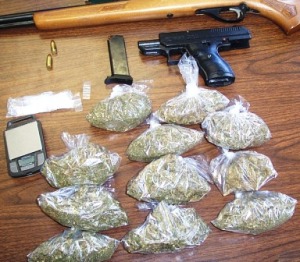 British taxpayers have handed at least £3.6million in aid to Iran, an investigation has found.
British taxpayers have handed at least £3.6million in aid to Iran, an investigation has found.The money has been used to fund the Islamic stateís security and border forces in an effort to stem the supply of drugs into Europe.
But campaign group Reprieve, which carried out the investigation, said recent spending had coincided with a huge surge in the number of alleged traffickers executed for their crimes.
The number arrested and executed by the Iranian state has been described as a Ďkilling spree of staggering proportionsí by another campaign group, Amnesty International.
Over a four-year period when Britain has been handing its anti-drug aid, Iran has executed more than 1,000 alleged traffickers.
There are also fears that the spending on security equipment such as 4x4 vehicles, night-vision goggles and mobile phone scanning devices could be used to crack down on dissent. The revelations come days after David Cameron mounted a spirited defence of his† policy of increasing foreign aid, saying Britain had a Ďmoral obligationí to help the worldís poor, even during times of austerity at home.
The Prime Minister acknowledged it was Ďdifficultí to make the case, but said specific programmes, such as those directed at tackling disease or child malnutrition, were producing tangible benefits.
He said the British people were Ďvery generousí, but said it was in the UKís wider interests to ensure that troubled states such as Somalia did not descend into chaos and fuel illegal immigration and terrorism.
However, the fact that millions has been spent on aid to Iran will heighten public concern that taxpayersí money is being wasted or used unwisely.
Reprieve investigator Maya Foa said: ĎItís outrageous that Britain, which is supposed to be committed to the abolition of capital punishment, should in fact be funding executions for drug offences in Iran. Given the countryís appalling record on human rights, there will be real concerns about how the equipment and support provided by Britain is being used.
ĎHundreds are being hanged every year, including children, vulnerable people and innocent scapegoats; that Britain should have played a part in this tragedy is shameful.í
Iran borders Afghanistan, which is responsible for around 90 per cent of the worldís opium production.
In 2008 Iran executed 96 people for drug trafficking. The following year that rose to 172, then 360 in 2010 and 488 in 2011.
Three quarters of all executions carried out in the country are for drug offences, and those sentenced to death include a 12-year-old boy and a 16-year-old boy.
Reprieve said arrests had soared during a £750,000 joint UK-France investigations project in Iran in 2010-11 and several of those arrested had been sentenced to death.
Between 2007 and 2010 Britain, France, Belgium and Ireland jointly funded a £1.73million border control project, which paid for security equipment, personnel training and paid for body scanners, sniffer dogs and other equipment.
Britain also paid up £117,000 for equipment including motorcycles, software and mobile telephone interception equipment, the investigation found.
Since 1998 the UK has provided at least £3.6million for anti-drug programmes. The Government has refused to provide a breakdown of funding in recent years.
Much of the funding goes through the UN Office on Drugs and Crime Ė making it even harder to track where it ends up.
In September 2011 Foreign Secretary William Hague met the Iranian foreign minister at the UN in New York and said he wanted Ďdeeper cooperationí with Iran on fighting drug trafficking.
Matthew Sinclair, chief executive of the TaxPayersí Alliance campaign group, said: ĎTaxpayers expect the aid budget to be directly helping the worldís vulnerable and needy, not spent on beefing up borders in Iran.í
A Foreign Office spokesman said: ĎWe provide aid to a range of partners to tackle the international drugs trade and minimise the threat it poses to the UK.
ĎWe take human rights very seriously and provide clear guidance to our officials. It is our policy not to disclose details about specific programmes or locations as to do so may reduce the effectiveness of this work.í
The Prime Minister has stuck to his pre-election pledge to spend 0.7 per cent of Britainís income on foreign aid.
In a letter to G8 leaders yesterday Mr Cameron called for a major drive against corruption in the developing world. He said showing that aid money was well spent was Ďvitalí in securing lasting support for it in the West.
But at the weekend an Ipsos/Mori poll revealed that only one in four people now back the Coalitionís aid policy. More than 60 per cent said most of the money spent on aid was Ďwastedí.
By †Daily Mail
The Iran Project is not responsible for the content of quoted articles.










